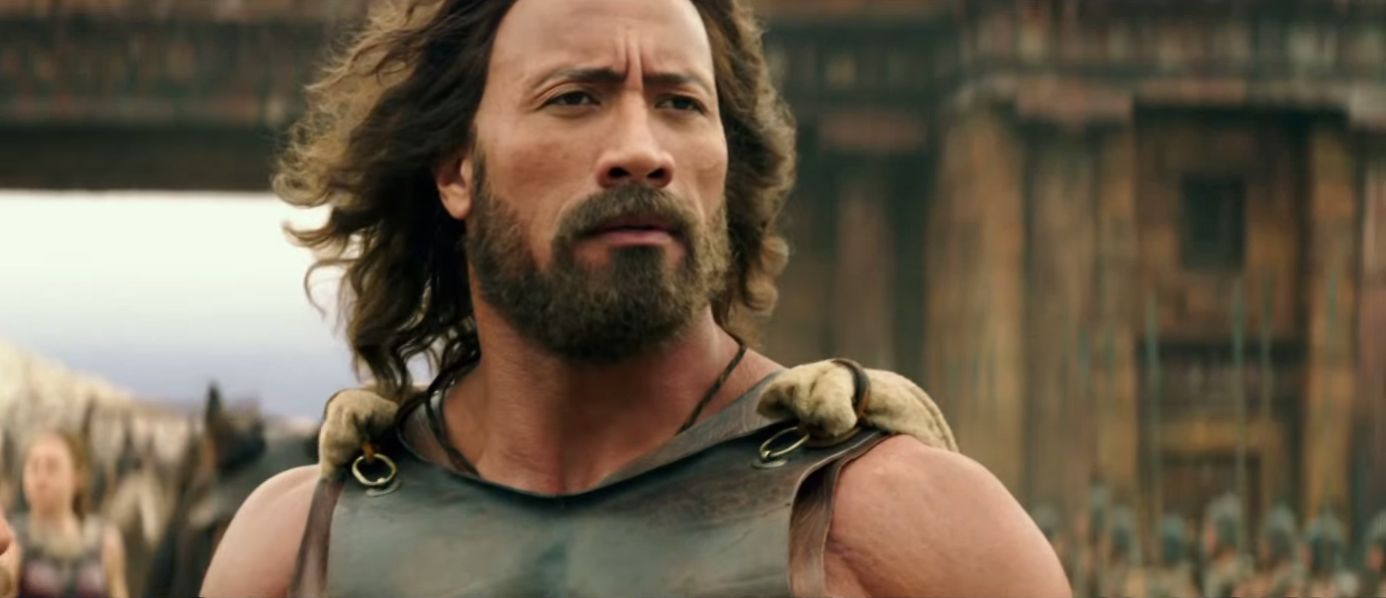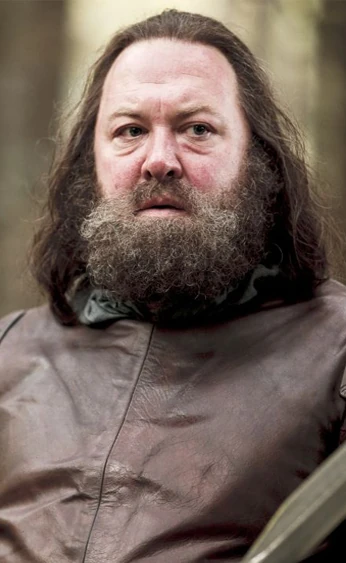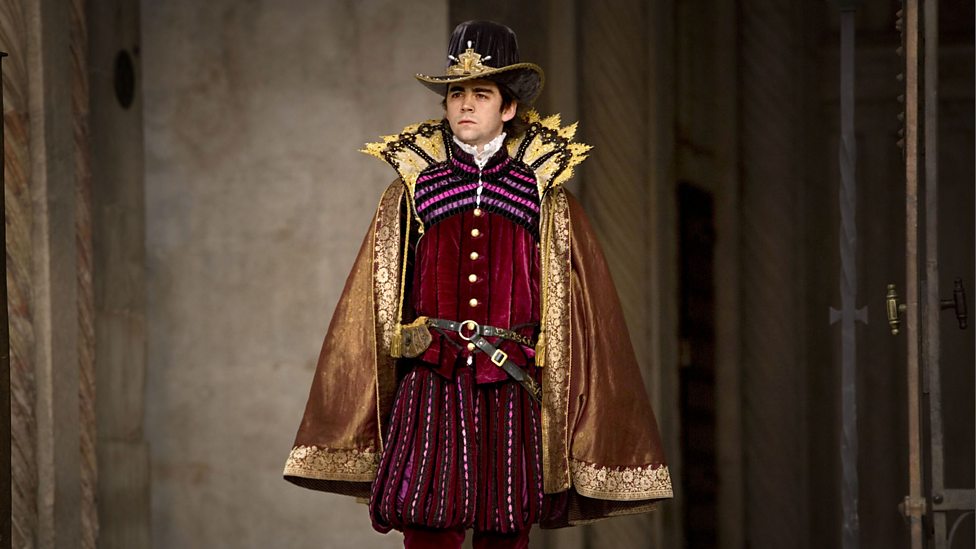What if Alexander the Great had not died a young man, but had lived to secure his Empire and pass it on to his son, Alexander IV?
What will be the closing date? The year Pompey the Great of Rome conquered the last vestige of Alexander's Empire: 63 BCE
The Great Kings of the Hellenistic World
336 - 287: Alexander III the Great (House of Argead) [1]
287 - 254: Alexander IV the Consolidator (House of Argead) [2]
254 - 214: Seleucus I the Farmer (House of Nicator) [3]
214 - 189: Alexander V (House of Nicator) [4]
189 - 156: Phillip III the Mad (House of Nicator) [5]
156 - 133: Philip IV the Feeble (House of Nicator) [6]

[1] At first only the King of Macedonia, Alexander III rose to become the great king, in fact a god-king, when he conquered the Persian Empire and then went on to conquer Central Asia and northwest India. He returned to Babylon in 323 and almost died from illness before his son, Alexander IV, was born by his new princess wife, Roxana of Bactria. But Alexander survived the illness and then became a robust and hearty man. He added Arabia to his empire and North Africa all the way to Cyrene. Once he had conquered the world, he set his sights on securing his Empire with good governance and raising his son to continue after him. Still robust in his late 60s it was a shock to the world that the God-King died. It was probably from a heart attack. Alexander IV was now 36 when he became the next God-King.
[2] Alexander IV, the Consolidator began his reign putting down rebellions from would be Kings, most notably from Ptolemy the Younger successfully and Bindusara unsuccessfully resulting in the formation of Maurya Empire in India far from the center of his realm. Still, once his throne was secure he tried to build a reputation as a conquerer by invading Italy.
Here he ran straight into the Roman mandible system which shredded his forces. Despite this, he won battles by his strength of numbers and would have won the war but for the Roman alliance with Carthage, which fearing they were next and for a free hand in Sicily, provided naval support and destroyed the Imperial Navy in a series of engagements, cutting Alexander off from reinforcements and resupply. Blockaded by the Roman Army and the Carthaginian Navy at Naples, Alexander was forced to ransom himself in order to prevent his brother Perseus from seizing the throne back home. After executing his brother, and loosing Egypt to a native revolt (funded with Carthaginian money) he seemed to realize that perhaps he wasn't meant to be conqueror and instead worked very hard at tying what was left of the empire together, a task he was much more successful at. As a result he was able to pass a stable Empire to his son in law, Seleucus.

[3] Seleucus was the son in law of Alexander IV, married to his daughter, Roxana, named after her grandmother. He was also the grandson of Seleucus Nicator, one of Alexander the Greats generals, for whom he was named. Alexander IV had several sons but most died in battle or young or rapidly showed themselves to be devious and unworthy. Seleucus had shown himself to be an admirable warrior and incredibly fertile - over the course of their marriage, Roxana gave birth over twenty times. Despite his warrior background, he knew that at some point the kingdom would over extend its capability to both support and defend itself and therefore committed to creating stability, transport routes and agriculture (earning him the honorific of The Farmer) to feed his troops. After forty years on the throne, he was succeeded by his seventh son and thirteenth child, Alexander
 [4] On the death of Seleucus it was chaos. Not only did generals rebel, but most of the sons of Seleucus also claimed the throne and battled each other. Roxana's favorite was her youngest surviving son, named Alexander after her father and grandfather, he was the seventh son and thirteenth child. She spread the story that on his death bed Seleucus had given the throne to him with his last word, "Alexander!" Some said it was entirely made up. Others said that Selecus wasn't naming his heir but speaking the name of Alexander the Great as he saw a vision of him. But this was enough for Alexander to be crowned in Babylon and secure the capital. He immediately went to war with his five older brothers who claimed the throne. (One older brother, Philip, was feeble minded and cared for by Roxana.)
[4] On the death of Seleucus it was chaos. Not only did generals rebel, but most of the sons of Seleucus also claimed the throne and battled each other. Roxana's favorite was her youngest surviving son, named Alexander after her father and grandfather, he was the seventh son and thirteenth child. She spread the story that on his death bed Seleucus had given the throne to him with his last word, "Alexander!" Some said it was entirely made up. Others said that Selecus wasn't naming his heir but speaking the name of Alexander the Great as he saw a vision of him. But this was enough for Alexander to be crowned in Babylon and secure the capital. He immediately went to war with his five older brothers who claimed the throne. (One older brother, Philip, was feeble minded and cared for by Roxana.)
One by one he defeated them. The last was Achilles who was based in the homeland of Macedonia. Alexander by then had lost Bactria, Thrace, and Greece from the Empire to locals rebelling. By this time Carthage and Rome were at war with each other, leaving Alexander a free hand to restore the most important province of Egypt. As he secured Egypt, the Parthians revolted. So next was a long war for Iran. By the year 190 BCE a stalemate led to central and eastern Iran now in the new Parthian Empire and only western Iran in the Empire of Alexander. He died a few years later and his Eldest Son, Phillip took the throne.
 [5] A proven warrior and commander in the campaigns against Egypt and Parthia, Phillip was seen at the time as a man of great potential, someone Truly worthy of the legacy of Alexander the great. Indeed, his greatest achievements would come in 178 when he set out to take on the weakened Rome and Carthage. For six years (178-172) his empire would battle the Romans, but he would never land on the Italian peninsula. After conquering the Adriatic coast up to modern day Tyrol he would sign peace with the Roman republic. His war against Carthage however would fare much better. From 177 to 171 Hellenic forces would rampage across North Africa, but instead of directly conquering the Carthaginians Phillip would create a puppet council to rule over these new far flung possessions.
[5] A proven warrior and commander in the campaigns against Egypt and Parthia, Phillip was seen at the time as a man of great potential, someone Truly worthy of the legacy of Alexander the great. Indeed, his greatest achievements would come in 178 when he set out to take on the weakened Rome and Carthage. For six years (178-172) his empire would battle the Romans, but he would never land on the Italian peninsula. After conquering the Adriatic coast up to modern day Tyrol he would sign peace with the Roman republic. His war against Carthage however would fare much better. From 177 to 171 Hellenic forces would rampage across North Africa, but instead of directly conquering the Carthaginians Phillip would create a puppet council to rule over these new far flung possessions.
With the west secured Phillip turned to Persia, the land that remained unconquered. From 169 to 167 Phillip led forces into the Parthian empire, but during one of his later campaigns he was struck with a strange illness that nearly took his life. Fearing for him his generals took him back to Babylon. But for the Hellenic kingdoms things were about to change drastically. When Phillip recovered he was not the same man, he was paranoid, spiteful, and had become possessed of odd hobbies and beliefs. As the years wore on he increasingly neglected the empire, not helped by his execution of several generals and governors for 'treason'. As he lay on his death bed many of his own achievements would lay in ruin. The Adriatic was in revolt, Carthage had been free for several years, Egypt stood defiant in her rebellion and the Parthian empire encroached in the east. But Phillips last strike would debilitate the empire, fearing his sons would remove him him from the throne he ordered them slain, and not three days later did the Mad King Phillip die, leaving the empire devoid of a clear ruler for the second time in half a century.
 [6] Phillip III, the one with the unusual spelling for his name in the Greek language, killed all his heirs before he died. But like everyone before him, his father and his uncles, he ignored his 'feeble' uncle Philip, still living in the Imperial Palace in Babylon long after his mother, Roxana, had passed. He was now 77 and considered odd, stupid, and barely able to care for himself. The imperial guard were in turmoil after the death of the Mad King and afraid that they might be set upon by the people taking revenge on them for the terror done by the king they had protected. In roaming the palace they came upon Uncle Philip in his bed chamber, his head buried in scrolls that were all upon his bed, totally oblivious to the chaos sweeping the palace. Realizing he was a descendant of Alexander the Great and the older brother of Alexander V, they too him to the throne room, wrapped him in the royal purple robes, crowned him with the golden crown of laurels, and proclaimed him the Great God King, Philip IV.
[6] Phillip III, the one with the unusual spelling for his name in the Greek language, killed all his heirs before he died. But like everyone before him, his father and his uncles, he ignored his 'feeble' uncle Philip, still living in the Imperial Palace in Babylon long after his mother, Roxana, had passed. He was now 77 and considered odd, stupid, and barely able to care for himself. The imperial guard were in turmoil after the death of the Mad King and afraid that they might be set upon by the people taking revenge on them for the terror done by the king they had protected. In roaming the palace they came upon Uncle Philip in his bed chamber, his head buried in scrolls that were all upon his bed, totally oblivious to the chaos sweeping the palace. Realizing he was a descendant of Alexander the Great and the older brother of Alexander V, they too him to the throne room, wrapped him in the royal purple robes, crowned him with the golden crown of laurels, and proclaimed him the Great God King, Philip IV.
The head of the guard, Ajax, expected he'd be his puppet as he was feeble minded. It turned out that Philip was anything but feeble minded. He just had been cursed from childhood with a terrible stutter and had withdrawn from trying to express himself. When nervous he basically shut down and just stuttered. When his father had died and all his brothers had gone to war with Alexander V, Philip had decided at the age of 19, (Alexander V was 17,) he was more likely to survive if he never challenge the perception of him all had. Some years into his brother's reign he'd lost the stutter and was more secure in expressing himself to those he trusted, which included the King and their mother. Alexander knew his brother was not feeble but actually very intelligent, in fact what later would be called a genius savant, as did his mother. They kept secret this fact, but Philip was a secret adviser to his brother.
When his nephew took the throne, he was 44 and no one now knew the truth about him except his aged mother, who died shortly thereafter. Philip knew in his gut that he shouldn't trust his nephew Phillip, so he played the feeble fool to him. Most left him alone in his chambers where he devoted himself to studying history.
But as the new God King he was now confidant to find allies he could trust and maneuver them into places of power until he was able to have Ajax arrested and tried for the crimes he'd done for Phillip the Mad. Now Philip was able to secure his Empire and rule it.
Unfortunately this took some time. During these early years the Parthians moved west and north to the caucuses, the Romans conquered the east shore of the Adriatic and Carthage, and made 'alliances' with the Greek city states. A noble family descended from some of Alexander's companions took Macedonia and western Asia Minor out of the Empire and then quickly fell apart into several smaller states. Egypt secured itself as a separate state and the southern part of the Arabian peninsula broke away too.
One thing that Philip IV did was realize that with Parthia having moved into western Iran that Babylon was too close to the border to be a central capital and relocated the capital to Damascus.
Even though he was 77 on taking the throne and had never had a romantic relationship or even just a sexual one, he married the much younger Helen, his nephew's daughter, who gave him five children in the next seven years, three of them sons.
Philip turned out to be a robust man and lived until he was 100 years old. The two major issues he had to deal with during that time was a problem with the Jews in Judaea who rebelled and the other was who would be the major influence in the Greek and Asia Minor states, the Hellenistic Empire or Rome. Philip's final solution in Judaea was to set up an autonomous 'kingdom' there that swore fealty to the Empire. Philip himself went to Jerusalem and prayed in the outer courtyard to the God of the Jews. This pacified the Jews. Unfortunately things didn't go so well with Rome and the states of Greece and Asia Minor. By his death it was clear that Rome was the dominant power in those areas, having won a war with the Hellenistic Empire in 146 in Pergamun. Rome was at the northern border of the Empire, even though officially those states were only 'allies' of Rome. But Roman troops were there.
What will be the closing date? The year Pompey the Great of Rome conquered the last vestige of Alexander's Empire: 63 BCE
The Great Kings of the Hellenistic World
336 - 287: Alexander III the Great (House of Argead) [1]
287 - 254: Alexander IV the Consolidator (House of Argead) [2]
254 - 214: Seleucus I the Farmer (House of Nicator) [3]
214 - 189: Alexander V (House of Nicator) [4]
189 - 156: Phillip III the Mad (House of Nicator) [5]
156 - 133: Philip IV the Feeble (House of Nicator) [6]
[1] At first only the King of Macedonia, Alexander III rose to become the great king, in fact a god-king, when he conquered the Persian Empire and then went on to conquer Central Asia and northwest India. He returned to Babylon in 323 and almost died from illness before his son, Alexander IV, was born by his new princess wife, Roxana of Bactria. But Alexander survived the illness and then became a robust and hearty man. He added Arabia to his empire and North Africa all the way to Cyrene. Once he had conquered the world, he set his sights on securing his Empire with good governance and raising his son to continue after him. Still robust in his late 60s it was a shock to the world that the God-King died. It was probably from a heart attack. Alexander IV was now 36 when he became the next God-King.
[2] Alexander IV, the Consolidator began his reign putting down rebellions from would be Kings, most notably from Ptolemy the Younger successfully and Bindusara unsuccessfully resulting in the formation of Maurya Empire in India far from the center of his realm. Still, once his throne was secure he tried to build a reputation as a conquerer by invading Italy.
Here he ran straight into the Roman mandible system which shredded his forces. Despite this, he won battles by his strength of numbers and would have won the war but for the Roman alliance with Carthage, which fearing they were next and for a free hand in Sicily, provided naval support and destroyed the Imperial Navy in a series of engagements, cutting Alexander off from reinforcements and resupply. Blockaded by the Roman Army and the Carthaginian Navy at Naples, Alexander was forced to ransom himself in order to prevent his brother Perseus from seizing the throne back home. After executing his brother, and loosing Egypt to a native revolt (funded with Carthaginian money) he seemed to realize that perhaps he wasn't meant to be conqueror and instead worked very hard at tying what was left of the empire together, a task he was much more successful at. As a result he was able to pass a stable Empire to his son in law, Seleucus.

[3] Seleucus was the son in law of Alexander IV, married to his daughter, Roxana, named after her grandmother. He was also the grandson of Seleucus Nicator, one of Alexander the Greats generals, for whom he was named. Alexander IV had several sons but most died in battle or young or rapidly showed themselves to be devious and unworthy. Seleucus had shown himself to be an admirable warrior and incredibly fertile - over the course of their marriage, Roxana gave birth over twenty times. Despite his warrior background, he knew that at some point the kingdom would over extend its capability to both support and defend itself and therefore committed to creating stability, transport routes and agriculture (earning him the honorific of The Farmer) to feed his troops. After forty years on the throne, he was succeeded by his seventh son and thirteenth child, Alexander

One by one he defeated them. The last was Achilles who was based in the homeland of Macedonia. Alexander by then had lost Bactria, Thrace, and Greece from the Empire to locals rebelling. By this time Carthage and Rome were at war with each other, leaving Alexander a free hand to restore the most important province of Egypt. As he secured Egypt, the Parthians revolted. So next was a long war for Iran. By the year 190 BCE a stalemate led to central and eastern Iran now in the new Parthian Empire and only western Iran in the Empire of Alexander. He died a few years later and his Eldest Son, Phillip took the throne.

With the west secured Phillip turned to Persia, the land that remained unconquered. From 169 to 167 Phillip led forces into the Parthian empire, but during one of his later campaigns he was struck with a strange illness that nearly took his life. Fearing for him his generals took him back to Babylon. But for the Hellenic kingdoms things were about to change drastically. When Phillip recovered he was not the same man, he was paranoid, spiteful, and had become possessed of odd hobbies and beliefs. As the years wore on he increasingly neglected the empire, not helped by his execution of several generals and governors for 'treason'. As he lay on his death bed many of his own achievements would lay in ruin. The Adriatic was in revolt, Carthage had been free for several years, Egypt stood defiant in her rebellion and the Parthian empire encroached in the east. But Phillips last strike would debilitate the empire, fearing his sons would remove him him from the throne he ordered them slain, and not three days later did the Mad King Phillip die, leaving the empire devoid of a clear ruler for the second time in half a century.

The head of the guard, Ajax, expected he'd be his puppet as he was feeble minded. It turned out that Philip was anything but feeble minded. He just had been cursed from childhood with a terrible stutter and had withdrawn from trying to express himself. When nervous he basically shut down and just stuttered. When his father had died and all his brothers had gone to war with Alexander V, Philip had decided at the age of 19, (Alexander V was 17,) he was more likely to survive if he never challenge the perception of him all had. Some years into his brother's reign he'd lost the stutter and was more secure in expressing himself to those he trusted, which included the King and their mother. Alexander knew his brother was not feeble but actually very intelligent, in fact what later would be called a genius savant, as did his mother. They kept secret this fact, but Philip was a secret adviser to his brother.
When his nephew took the throne, he was 44 and no one now knew the truth about him except his aged mother, who died shortly thereafter. Philip knew in his gut that he shouldn't trust his nephew Phillip, so he played the feeble fool to him. Most left him alone in his chambers where he devoted himself to studying history.
But as the new God King he was now confidant to find allies he could trust and maneuver them into places of power until he was able to have Ajax arrested and tried for the crimes he'd done for Phillip the Mad. Now Philip was able to secure his Empire and rule it.
Unfortunately this took some time. During these early years the Parthians moved west and north to the caucuses, the Romans conquered the east shore of the Adriatic and Carthage, and made 'alliances' with the Greek city states. A noble family descended from some of Alexander's companions took Macedonia and western Asia Minor out of the Empire and then quickly fell apart into several smaller states. Egypt secured itself as a separate state and the southern part of the Arabian peninsula broke away too.
One thing that Philip IV did was realize that with Parthia having moved into western Iran that Babylon was too close to the border to be a central capital and relocated the capital to Damascus.
Even though he was 77 on taking the throne and had never had a romantic relationship or even just a sexual one, he married the much younger Helen, his nephew's daughter, who gave him five children in the next seven years, three of them sons.
Philip turned out to be a robust man and lived until he was 100 years old. The two major issues he had to deal with during that time was a problem with the Jews in Judaea who rebelled and the other was who would be the major influence in the Greek and Asia Minor states, the Hellenistic Empire or Rome. Philip's final solution in Judaea was to set up an autonomous 'kingdom' there that swore fealty to the Empire. Philip himself went to Jerusalem and prayed in the outer courtyard to the God of the Jews. This pacified the Jews. Unfortunately things didn't go so well with Rome and the states of Greece and Asia Minor. By his death it was clear that Rome was the dominant power in those areas, having won a war with the Hellenistic Empire in 146 in Pergamun. Rome was at the northern border of the Empire, even though officially those states were only 'allies' of Rome. But Roman troops were there.
Last edited:




